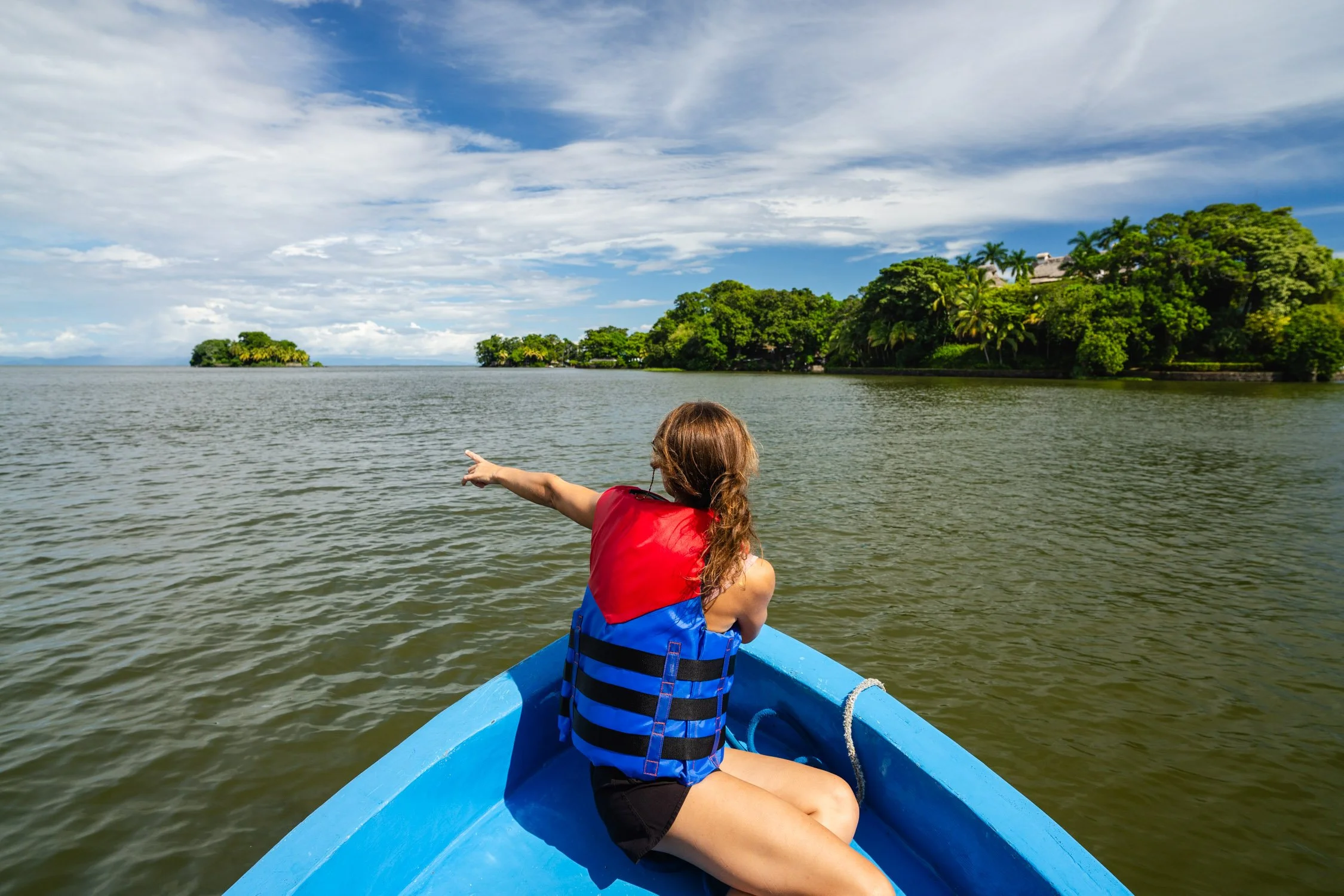Stop Overplanning Your Vacations, You’re Giving Yourself Travel Fatigue
Travel is meant to be exciting, a way to explore new cultures, sights, and experiences that expand your worldview and create lasting memories. However, the trend of overplanning vacations is leading many travelers down the path of travel fatigue. If you’ve ever come home from a trip feeling more exhausted than when you left, you might be familiar with this. While it’s natural to want to make the most of your time away, packing your schedule too tightly can lead to burnout, overstimulation, and even a sense of dissatisfaction with your experience.
Looking for monkey’s around the islands of Lake Nicaragua. Photo by Dalton Johnson
What is Travel Fatigue?
Travel fatigue is that feeling of being mentally and physically drained during or after a vacation, which can come from trying to do too much in too little time. It’s a common phenomenon, especially for those who jam-pack their itineraries with back-to-back activities. While on the surface it seems like the best way to maximize a trip, constantly rushing from one site to another can actually cause you to miss out on the true joy of travel. Instead of savoring the moments, everything becomes a blur, and when you return home, you may struggle to recall the details of what should have been an incredible experience.
Why Overplanning Leads to Travel Fatigue
Overplanning can turn a dream vacation into a series of stressful, rigid tasks. Every moment is scheduled, leaving little room for spontaneity, relaxation, or even appreciating the environment. When you’re constantly on the go, your body and mind don’t have the time to recharge or process what you’re experiencing.
Travel can be overstimulating, especially when you're navigating foreign cities, trying new foods, and meeting new people. When you're on sensory overload day after day, your brain can only take in so much before it starts to blur details together. This can make it harder to remember the experiences you had or feel truly present in the moment.
Avoid Overplanning with These Tips
To truly enjoy your vacation, it's essential to strike a balance between activity and downtime. Here are some practical tips to help you avoid overplanning and reduce the risk of travel fatigue:
1. Plan Downtime
One of the most effective ways to avoid travel fatigue is to schedule rest days into your itinerary. These aren’t just days where you cut back on sightseeing—they are intentional breaks. Whether it's lounging at a café, booking a spa treatment, or simply spending a lazy morning in bed with a good book, giving yourself permission to rest is essential. Rest days offer your mind and body the chance to rejuvenate, leaving you refreshed for your next adventure.
2. Limit the Number of Major Activities Per Day
It’s tempting to want to visit every landmark, museum, and restaurant in a single trip, but this is one of the quickest ways to burn out. Instead, aim to limit your itinerary to one or two major activities per day. This allows you to fully immerse yourself in the experience without rushing through it. You’ll have time to appreciate the details, whether it’s the intricacies of a historic site or the flavor of a local dish.
3. Build in Flexibility
Travel plans don’t always go perfectly, so it’s crucial to leave room for flexibility. Whether it's an unexpected recommendation from a local, a museum that takes longer to explore, or the discovery of a hidden café, having extra time in your schedule lets you adapt and embrace spontaneity. Plus, it gives you a buffer in case plans change or you need extra time to rest.
4. Prioritize Experiences, Not Checklists
Sometimes we feel pressured to check off as many sights as possible, but this can make the experience feel more like a chore. Focus on quality over quantity. Instead of trying to do everything, prioritize experiences that truly resonate with you. This will help create meaningful memories that stand out and give you time to absorb and reflect on what you’ve seen.
5. Travel at a Sustainable Pace
It’s important to travel at a pace that gives you time to process. After an exciting day exploring a new city or hiking in a national park, you need time to decompress and mentally file away those experiences. Moving from one activity to the next without a break can cause you to feel overstimulated and exhausted. Pace your trip in a way that allows for leisurely moments between adventures, so you have time to digest and appreciate the richness of your journey.
Resting Helps You Savor the Experience
When you prioritize downtime, you’re not just preserving your energy—you’re also giving yourself the chance to savor your trip. Quiet moments spent observing a city from a park bench, sipping coffee in a quiet café, or strolling along a beach can offer just as much insight into a destination as a packed itinerary of attractions. In fact, these moments of relaxation often end up being the most memorable.
In the end, the goal of travel isn’t to tick off a checklist of tourist spots but to immerse yourself in the experience—to learn, grow, and create lasting memories. By slowing down and giving yourself time to breathe, you’ll enjoy a richer and more meaningful journey. So, stop overplanning and start enjoying the freedom of a vacation that’s as much about rest as it is about adventure.
The Importance of Rest Days
Rest days are not a sign of laziness; they are an essential part of making the most out of your vacation. By incorporating them into your travel plans, you allow yourself to fully recover from the physical and mental demands of exploring a new place. A well-placed rest day can mean the difference between feeling recharged and ready for the next leg of your journey or feeling too drained to enjoy it.
Incorporating rest doesn’t mean you’re missing out—it’s quite the opposite. It ensures that you’re present for the best moments, rather than running on empty and unable to fully appreciate the experiences. Whether it's a full day of relaxation or just an afternoon of downtime, it’s crucial to give yourself the space to relax and reflect.
The Amalfi Coastline of Italy. Photo by Dalton Johnson
Travel fatigue is a common issue that results from overplanning and overstimulation. The key to avoiding it is to balance your itinerary with periods of activity and rest. Embrace slower travel, limit the number of daily activities, and plan downtime so that you can fully appreciate the experiences and create lasting memories. By taking the time to unwind, you’ll return home not just with souvenirs, but with the energy and mental clarity that a truly fulfilling vacation brings.











